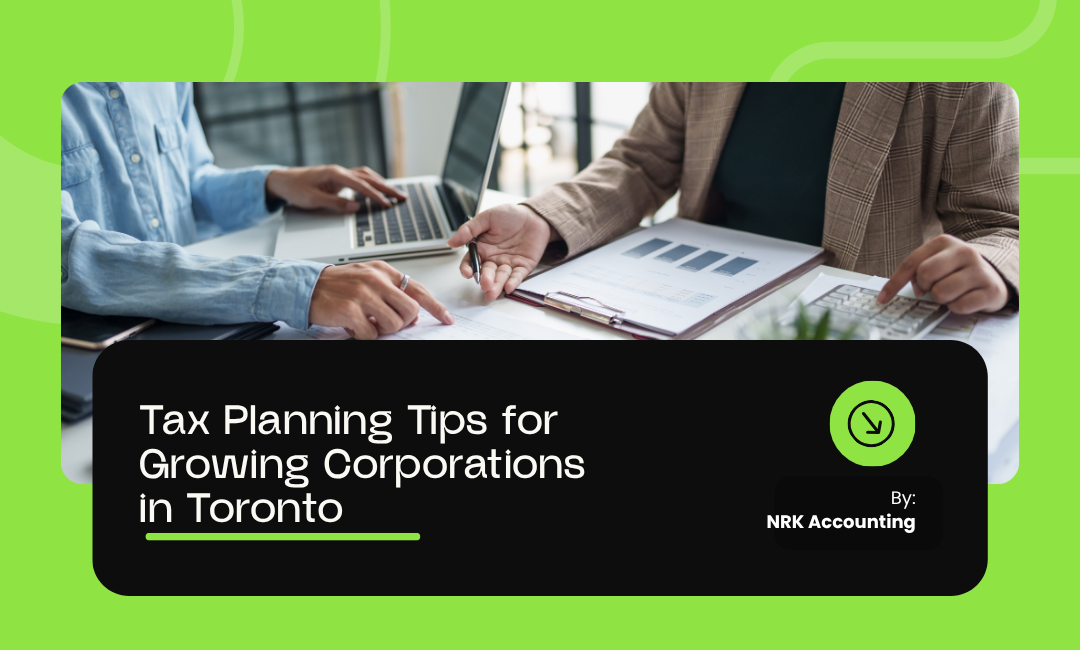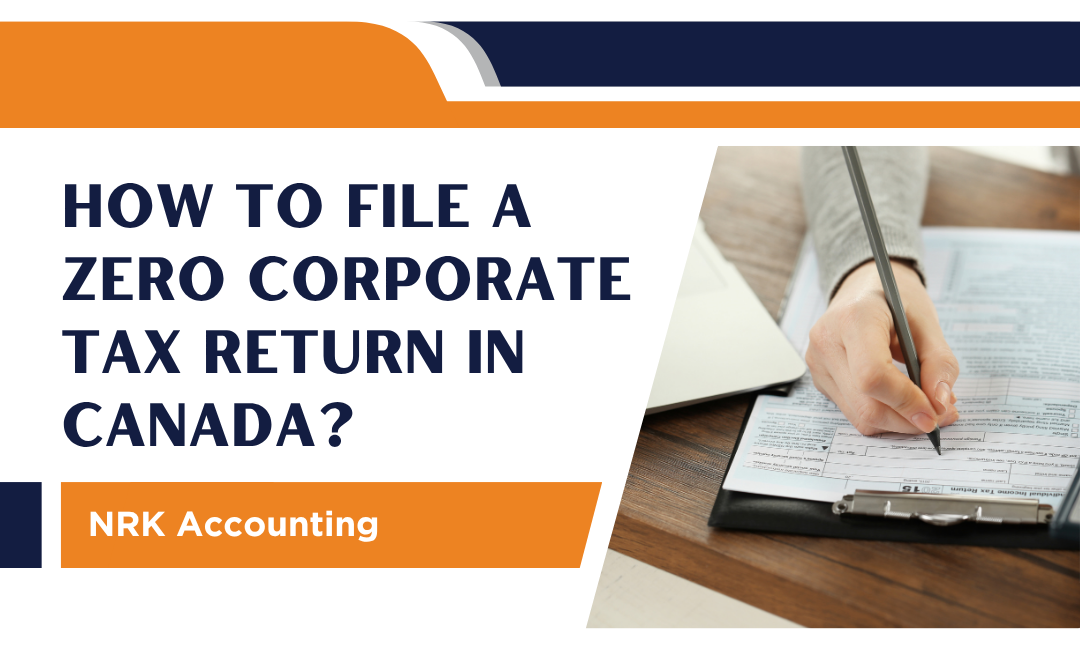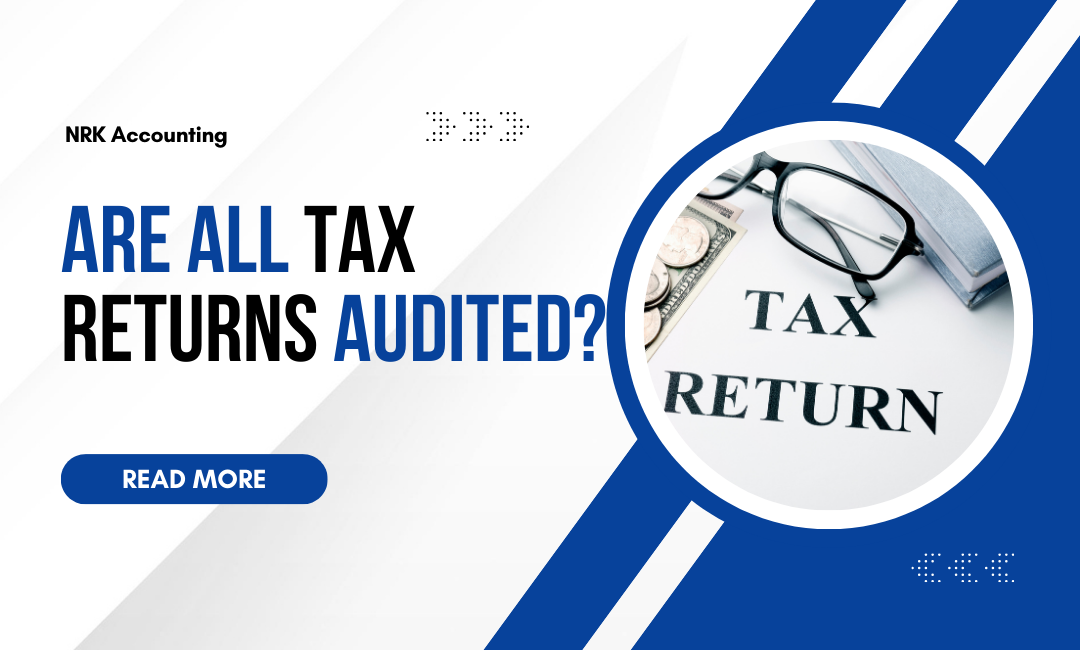Can I File My Own Corporate Taxes in Canada? A Tax Pro’s Honest Answer
You technically can file your own corporate taxes in Canada. Just like you technically can perform your own root canal. The T2 return sits at 8 pages minimum, but the average corporate filing involves over 50 schedules and supporting documents. One missed checkbox? That’s a CRA audit invitation with your name on it.
Most of small business owners who DIY their corporate taxes end up paying more in penalties than they would’ve spent on an accountant. We’re talking missed deductions worth thousands, late filing fees, and stress levels that’d make your doctor concerned.
What we’ll cover:
- The legal requirements and what CRA actually expects from your T2 return
- Hidden costs of DIY filing (spoiler: it’s not just about the money)
- When filing yourself makes sense vs. when you’re playing with fire
At NRK Accounting, we’ve rescued hundreds of Toronto businesses from DIY tax disasters. Our team handles everything from basic T2s to complex corporate structures—and yes, we’re open 7 days a week because tax problems don’t follow business hours.
The Legal Requirements and What CRA Actually Expects
Yes, you can legally file your own corporate taxes in Canada. No special license required. But here’s what you’re signing up for:
Your T2 return must be filed within 6 months after your fiscal year-end. Miss that deadline? You’re looking at 5% of unpaid taxes as a penalty, plus another 1% for each month you’re late (up to 12 months). That adds up fast.
The CRA expects precision. We’re talking:
- Schedule 100 – Balance sheet information
- Schedule 125 – Income statement details
- Schedule 50 – Shareholder information
- GIFI codes – Four-digit codes for every financial line item
- Provincial tax forms (varies by province)
Got foreign income? Add Form T1134. Claiming SR&ED credits? That’s Form T661 with technical narratives. Own other corporations? Hello, Schedule 9.
Here’s what catches most people: CRA wants consistency between your financial statements and tax schedules. One number off? Red flag. Wrong GIFI code? Another flag.
Pro tip: The T2 software costs $200-800 annually, but it won’t tell you what to file—just how to file it. That’s where Toronto businesses often call us at NRK Accounting after realizing they’re in over their heads.
Hidden Costs of DIY Filing
You’ll spend 40-60 hours on your first corporate tax return. That’s a full work week you’re not growing your business. At your hourly rate, what’s that worth?
The software alone runs $200-800 yearly. Add courses to understand tax law ($500+), potential amended returns ($200 each), and suddenly DIY isn’t looking so cheap. But here’s the killer—missed deductions.
Most business owners miss:
- Home office expenses (up to $5,000 annually)
- Vehicle expenses beyond basic mileage
- Capital cost allowance optimization
- Small business deduction thresholds
One client came to us after three years of DIY filing. We found $18,000 in missed deductions. Just sitting there. Untouched.
Then there’s audit risk. DIY filers face 3x higher audit rates than professionally-filed returns. Why? Simple errors like mismatched GST/HST numbers or incorrect expense categorization trigger automated reviews.
The stress factor? Unmeasurable. You’re lying awake, wondering if you claimed that laptop correctly. Meanwhile, we handle CRA notices daily at NRK Accounting—it’s Tuesday for us, but it’s your whole week ruined.
When Filing Yourself Makes Sense vs. When You’re Playing With Fire
Let’s consider each case in detail:
File Yourself If:
Your corporation is basically a ghost town. No revenue, no expenses, no activity. You’re keeping it alive for future use. Even then, you still need those minimum schedules filed correctly.
You have:
- Under $50,000 revenue
- No employees (including yourself on payroll)
- Single shareholder structure
- No GST/HST registration
- All income from one Canadian source
And you have an accounting education or significant tax experience. Otherwise, skip to the next section.
Get Professional Help When:
You’ve got any complexity whatsoever. Multiple income streams? Stop right there. Inventory? Don’t even think about it. Here’s your danger zone checklist:
- Payroll (T4s, source deductions, ROEs)
- HST/GST filing requirements
- Inter-company transactions
- Foreign income or expenses
- SR&ED claims or investment tax credits
- Revenue over $500,000
See yourself in any of these? You’re playing with fire. The CRA doesn’t care that you “tried your best.” They want accuracy.
Quick reality check: Would you let your client DIY what you’re professional at? Exactly. At NRK Accounting, we see the aftermath of DIY corporate taxes weekly. The fix always costs more than doing it right initially.
Corporate Tax Peace of Mind? That’s NRK Accounting Territory
Filing your own corporate taxes is possible, but rarely profitable. Between missed deductions, audit risks, and 40+ hours of your time, DIY filing costs more than you think. Smart business owners know when to delegate.
Key takeaways:
- T2 returns require 50+ schedules and perfect GIFI coding
- DIY filers miss an average of $6,000 in deductions annually
- Audit risk triples when you file yourself
- Professional filing costs less than fixing DIY mistakes
We get it—you built your business from scratch. But corporate taxes aren’t where you prove your independence. NRK Accounting handles T2 returns for Toronto businesses daily, catching deductions you didn’t know existed. Book a free consultation and we’ll show you exactly what you’ve been missing. Open 7 days because tax deadlines don’t wait.







